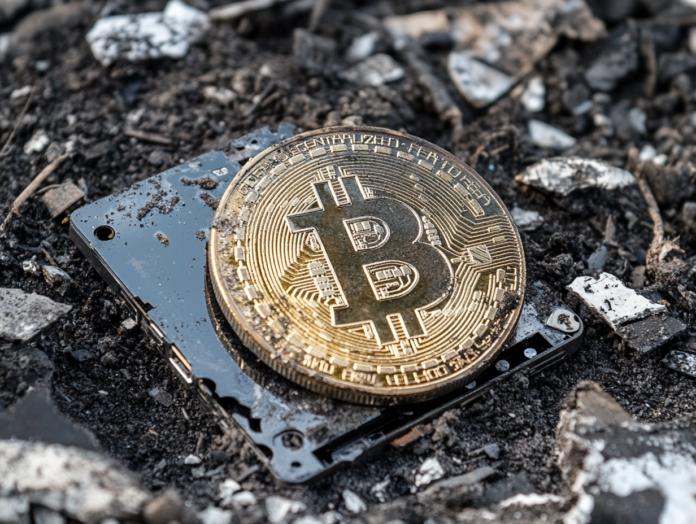A recent court ruling in Britain has denied Mr. James Howells’ claim to excavate a landfill where he believes a hard drive containing a significant amount of bitcoin was mistakenly dumped over a decade ago. Mr. Howells has been attempting to recover the laptop hard drive since 2013, asserting it contains the private key for a large sum of cryptocurrency which he mined in 2009. The bitcoin value has soared since then, with 8,000 bitcoins (the revised number of bitcoins Mr. Howells claims he lost) being worth around $765 million as of last month. High Court judge Keyser KC ruled last week in favor of the defendant, Newport City Council, stating that Mr. Howells has no realistic chance of success at trial. This case has sparked discussions in the crypto and legal community about ownership rights and environmental concerns related to cryptocurrency retrieval.
The Disputed Bitcoin Claim
Mr. Howells sought an order to either have the hard drive delivered or be allowed to excavate the landfill site in order to find it. Alternatively, he requested compensation equivalent to the value of the bitcoin he can no longer access. The judge ruled against Mr. Howells’ claim, citing the Control of Pollution Act 1974 which states that anything delivered to the authority by another person in the course of using the facilities shall belong to the authority and may be dealt with accordingly. Judge Keyser KC disagreed with Mr. Howells’ assertion that the words ‘shall belong to the authority’ do not negate the item’s belonging to its former owner, stating the words are ‘unqualified and unrestricted’. The judge saw no reason to believe the defendant’s retention of the hard drive is ‘unconscionable’ under the law.
“In my view there would be no realistic prospect of a finding that the defendant’s retention of the Hard Drive was unconscionable. The defendant was not retaining it for gain or because it wanted it. It was retaining it because it was buried in landfill,” the ruling said.
Environmental Concerns and Legal Limitations
The court also considered the environmental impact of excavating the landfill site. Newport City Council argued that the process would release harmful substances into the environment, posing serious public health issues and environmental concerns. This perspective was upheld by the judge, who found no ‘reasonable grounds’ for the case. He dismissed the claim, stating there was no realistic prospect of succeeding if it went to trial and no other compelling reason why it should be disposed of at trial. The claim is also barred by the six-year statute of limitations as Mr. Howells knew the facts material to his claim by November 2013 but did not commence proceedings until May 2024.
- The court highlighted environmental risks associated with the excavation
- The claim was also barred by the six-year statute of limitations
The Ongoing Quest for Lost Bitcoins
Despite the verdict, Mr. Howells has been relentless in his pursuit to recover his lost bitcoin. The city council’s refusal to allow excavation due to breaches of its license with NRW (Natural Resources Body for Wales), health and safety risks for staff, and potential damage from ground movement during or after excavation work has not deterred Howell. He has been seeking access to the landfill site in Newport, Wales, since November 2013 and made repeated requests to the defendant for access to the site in order to find and retrieve the hard drive, without success.
Conclusions and Implications
This case underscores the inherent risks associated with cryptocurrency, particularly when digital wallets are lost or inaccessible. It also raises questions about the environmental impact of retrieving lost cryptocurrency and the potential legal implications. If cases like this become more common, it could lead to significant changes in how cryptocurrency is regulated and protected. For now, however, the ruling stands as a reminder that while cryptocurrency offers many advantages, it also carries unique risks.
The case serves as a cautionary tale for those involved in cryptocurrency, highlighting the importance of adequately securing and backing up digital wallets. As the value of cryptocurrency continues to rise, so too does the potential loss when things go wrong.

